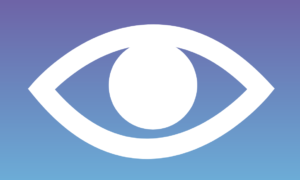Precision in Medicine (PiM) – harnessing machine learning and smartphone technology for early detection of Papilloedema and Diabetic Retinopathy
Early stage development, unmet need validation and market analysis for a low-cost smartphone-based app for early detection of visual problems to enable referral and treatment
Project Partners
- NIHR Devices for Dignity HRC
- The University of Sheffield
- K-Now Ltd
- Sheffield Teaching Hospitals NHS Foundation Trust
Health and Care Requirement
The UK Vision Strategy recognises 50% sight loss as preventable. Successful detection of eye diseases at an early stage could prevent or reduce further serious damage and complications. Papilloedema is the swelling of the optic nerve, which can press against the brain, and can cause death. Diabetic retinopathy is one of the leading preventable causes of blindness in the world, providing a massive economic burden on both developed and developing countries worldwide.
The Project Concept
Design, development and preliminary evaluation of a low-cost smartphone-based app for early detection of papilloedema (PE) and diabetic retinopathy (DR) to inform further treatment and referral. The solution uses a mobile app to image the retina, together with an attachment fixing the smartphone to a 20 Dioptre lens to ensure the necessary magnification and image focus. The images are then securely sent to the server for their remote processing. An image processing and machine learning pipeline analyses the image, detects image features that could indicate a disease and determines if a referral is required. The recommendation is then visualised in the app. The prototype has been integrated with a telehealth platform to provide further support to the patient, that can immediately be remotely assessed by a specialist in case of issues.
Prior to collaborating with D4D an algorithm for data analysis was developed by a group of students supervised within an image analysis module at the University of Sheffield. The OAK Group at the University of Sheffield developed the retinal image capture prototype for use with a smartphone. The advanced prototype of a telehealth system for remote video consultation that this concept is using was also previously developed by the OAK Group.
The direct potential impacts of the project are:
- improving the early detection of serious eye conditions;
- improving the quality of life of patients, as papilloedema and diabetic retinopathy will be investigated in more quickly. A speedier assessment using mobile technologies will also particularly benefit communities living in remote locations that may struggle to get seen by ophthalmologists, such as rural communities and islanders.
- providing a service that use fewer resources to support better clinical decisions. The project is estimated to reduce the screening process costs by 30%, thus directly impacting on the NHS economy and efficiency.
D4D are providing:
- Unmet need validation
- Proof of market analysis
- Value proposition development
- Regulatory requirements and strategy advice for working towards a CE mark
Next stage of development:
Collaboration between the same partner to apply for an NIHR grant, applying the lessons learnt in this project and the gap analysis requirements that have emerged to create a better solution, and then evaluate it with a multi-centre study.
Funding
Initial investment of £99k has been provided by a combination of K-Now Ltd and Innovate UK.




